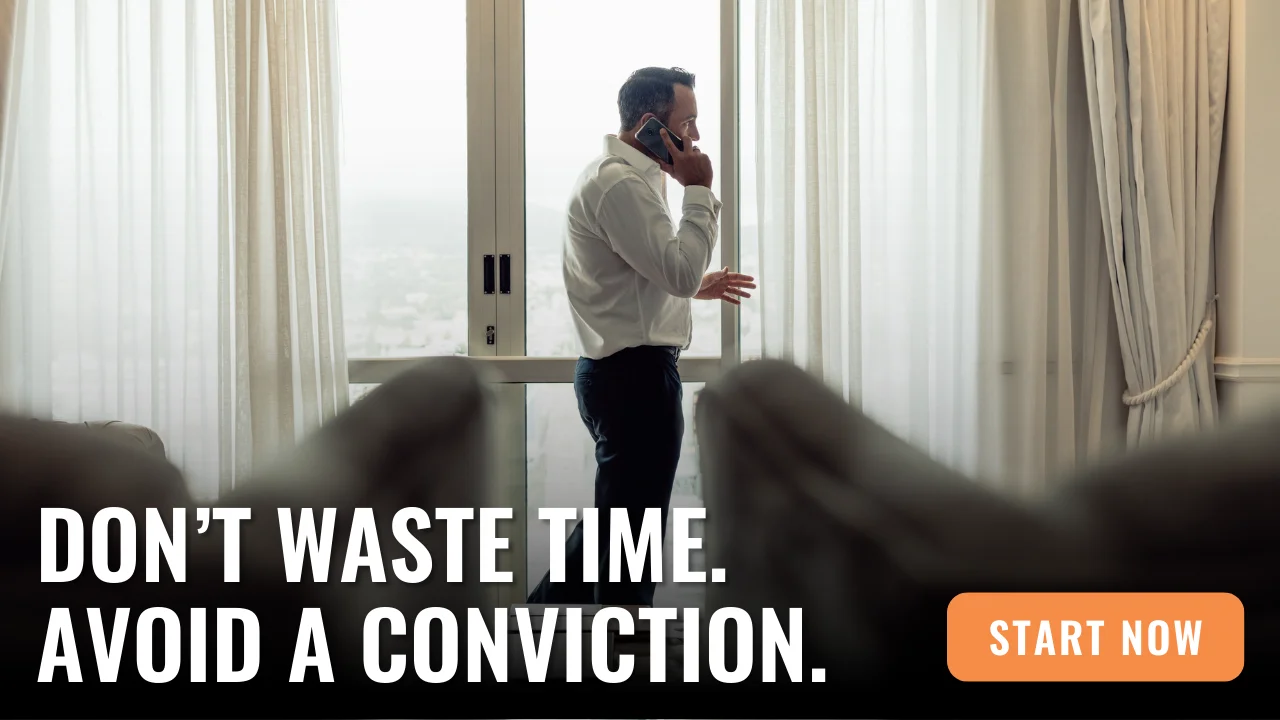 All FINRA members are required to report any Felony indictments, convictions, or guilty or no contest pleas. FINRA also requires members to report any misdemeanor offenses involving false oaths, false reports, bribery, perjury, counterfeiting, and many other offenses involving fraudulent pretenses. Members are required to report any level charges involving insurance, securities, or commodities laws. Learn more.
All FINRA members are required to report any Felony indictments, convictions, or guilty or no contest pleas. FINRA also requires members to report any misdemeanor offenses involving false oaths, false reports, bribery, perjury, counterfeiting, and many other offenses involving fraudulent pretenses. Members are required to report any level charges involving insurance, securities, or commodities laws. Learn more.
- Does FINRA care about misdemeanors? Yes, FINRA is particularly concerned with misdemeanors of fraudulent or deceitful character. This include misdemeanor offenses involving security sales, false oaths, false reports, bribery, perjury, burglary, larceny, theft, robbery, extortion, forgery, counterfeiting, fraudulent concealment, embezzlement, fraudulent conversion, or misappropriation of funds. Members must report these offenses to FINRA within 30 days. Learn more.
- What misdemeanors disqualify from FINRA? Any misdemeanor convictions involving securities, investment, insurance, or commodities laws will result in a disqualification under FINRA. Members can also be suspended for any misdemeanor offense involving fraudulent pretenses such as false report, bribery, perjury, theft, or forgery. Learn more.
WHAT DISQUALIFIES YOU ON A FINRA BACKGROUND CHECK?
FINRA background check disqualifiers include all felony convictions and certain fraudulent misdemeanor convictions within 10 years. Other disqualifications include injunctions from investment or securities activities and expulsions from financial trade organizations. Findings that a member violated securities or commodities laws and regulations can also result in a FINRA disqualification. Learn more.
- What shows up on a FINRA background check? FINRA conducts extensive background searches that can reveal bankruptcy records, liens, civil judgments, litigation history, and business records. FINRA also conducts background checks that can show all criminal arrests and conviction records. However, expunged criminal cases will not show up on a background check. Learn more.
- What do you have to disclose to FINRA? FINRA requires reporting violations of any securities, insurance, commodities, or financial-related laws or regulations. Individuals must report any complaint alleging theft or misappropriation, any felony charge or conviction, and certain fraudulent-natured misdemeanors. Members must also report if they’ve been expelled or denied entry into any financial trade organization. FINRA Rule 4530 details more specific reporting requirements.
WHAT IS THE FINRA RULE FOR DISCLOSURES?
The FINRA Rule for disclosures is Rule 4530. The Rule requires reporting if a member has been barred or enjoined from several financial-related activities or trade organizations. It also includes the FINRA criminal disclosure requirements that specify the nature of criminal offenses that must be reported. Learn more.
- Do I have to disclose a sealed record to FINRA? Sealed felony records and fraudulent misdemeanor crimes should be disclosed to FINRA. FINRA requires disclosure of guilty or no contest pleas and sealed cases in states like Texas typically involve a no contest plea at sentencing. Failure to properly disclose required offenses may result in further sanctions. Learn more.
- Does FINRA see expunged records? FINRA will not see records subject to a properly executed Expunction. However, criminal cases that have not been properly expunged may be visible. Expunction is a powerful legal tool that can remove all records of a qualifying criminal case. Learn more.
- How far back does FINRA broker check go? A FINRA BrokerCheck typically only consists of employment history within the previous 10 years. However, BrokerCheck will disclose any information about customer disputes, disciplinary events, and certain criminal and financial matters on the broker’s record. This may include pending events that have not been proven or resolved. Learn more.
WHAT DISQUALIFIES YOU ON A U4?
Any violations of securities or financial-related laws or regulations will disqualify a person on a U4. Additionally, all Felony convictions and certain misdemeanor offenses involving fraudulent pretenses within the previous 10 years are disqualifications. Injunctions involving unlawful investment or or securities practices, and expulsions from financial trade organizations are also U4 disqualifications. Learn more.
- How long do criminal disclosures stay on a U4? U4 applications ask for certain criminal disclosures with no time restrictions which means applicants must disclose if they’ve ever been charged or convicted of any felony offense and certain misdemeanor offenses. FINRA also requires members amend their U4 with any new qualifying criminal event.
- What does a U4 check for? The U4 is used to screen applicants and members for registration in FINRA and other financial trade organizations. As such, the U4 checks for employment history, criminal records, records of civil litigation, disciplinary history and other relevant information for registration. Learn more.
HOW DO I GET MY FINRA RECORD EXPUNGED?
A party seeking a FINRA expungement should initiate a waiver request using the FINRA Rule 2080 Waiver Request Form which must be initiated online. This process is governed by FINRA rules and procedures and often proceeds to arbitration. Learn more.
- How much does FINRA Expunction cost? Depending on the circumstances, a FINRA expunction costs between $1,575 to $3,750. An additional $1,125 hearing session fee is levied in some contexts. Learn more.
- Can disclosures be removed from U4? Yes, in some instances, clearly erroneous disclosures may be removed from a U4. Additionally, only bankruptcies and compromises with creditors within the previous 10 years must be reported. Therefore members with a bankruptcy, or a compromise can update their U4 after 10 years to remove these events.
DO I HAVE TO REPORT A DWI ON FINRA?
A misdemeanor DWI does not have to be reported to FINRA. However, a felony DWI must be reported to FINRA and could result in a statutory disqualification. This is because FINRA requires disqualification upon any felony conviction within the previous 10 years. Learn more.
- What events are reportable on FINRA form F4? Members and applicants must report any violations of securities, commodities, insurance, or financial-related laws or regulations and any customer complaints involving theft or misappropriation. Expulsions from membership in financial-trade organizations must be reported as well. Members are also required to report any felony offenses or misdemeanor crimes of forgery, perjury, larceny or offenses of a fraudulent, unethical character. Learn more.
- Does FINRA do an FBI background check? Yes, FINRA conducts extensive background checks on all members and applicants for registration, including in FBI criminal databases.
WHAT KIND OF BACKGROUND CHECKS DOES FINRA DO?
FINRA conducts extensive background investigations for all partners, officers, employees, and members, including FBI fingerprint checks. FINRA checks criminal records, civil judgments, liens, bankruptcies and business records. However, expunged criminal cases will not appear on a FINRA background check. Learn more.
- What does FINRA do with fingerprints? FINRA forwards fingerprint information electronically to the FBI for processing. FBI results are posted to the Central Registration Depository (CRD) within 72 hours in most cases.
- What does FINRA monitor? FINRA monitors all members and member firms to ensure compliance with securities and financial regulations. At its core, FINRA exists to protect investors and safeguard markets.
CAN I GET A SERIES 6 WITH A FELONY?
Any felony conviction within the previous 10 years is an automatic disqualification for FINRA. However, even after 10 years, any felony conviction of fraud, theft, or of a fraudulent nature must still be disclosed. In these instances FINRA would conduct an individual review to determine eligibility. Learn more.
- What disqualifies you from getting a Series 7 license? Violations of securities laws and regulations is a Series 7 license disqualification as are injunctions from investment related activities and expulsions from financial-trade organizations. All felony convictions and certain misdemeanor offenses within the previous 10 years are also disqualifications. Learn more.
- What adverse events are reportable? Expulsion from financial-trade organizations and customer complaints of theft or misappropriation are reportable. Violations of securities or commodities laws and regulations are also reportable. All felony charges and certain misdemeanors also require disclosure. Learn more.
FINRA FELONY CHARGE DISMISSED?
FINRA requires disclosure of all felony charges, even those resulting in dismissal. This is because FINRA can review and consider dismissed cases in context of a broader eligibility review to determine licensing. Learn more.
- How do I remove a disclosure from BrokerCheck? Parties seeking to remove items from BrokerCheck can pursue an expungement under FINRA Rule 2080. Additionally, FINRA rules require reporting of bankruptcies and compromises with creditors only if occurring within the previous 10 years. A member can therefore amend their U4 after 10 years to remove these events which will also remove these disclosures from BrokerCheck. Learn more.
WHAT IS THE FINRA RED FLAGS RULE?
The Red Flags Rule is a series of protocols that FINRA must implement to identify patterns and activities indicative of potential identity theft.
- Can FINRA send you to jail? FINRA itself cannot send a person to jail. However, certain conspiracies to defraud or subvert FINRA regulations can lead to federal prosecution and jail time. Additionally, FINRA does cooperate with law enforcement and can share evidence of illegal activity.
- Can a felon be a day trader? Any felony conviction within 10 years is a disqualification for a Series 7 license. Additionally, certain stockbroking firms may be hesitant to employ convicted felons.
WHAT ARE CONSIDERED CRIMES OF MORAL TURPITUDE?
Crimes of Moral Turpitude is a general descriptor for criminal offenses in American jurisprudence that reflect a dishonest, deceitful, and immoral character. Crimes of Moral Turpitude have particular relevance in immigration and professional licensing contexts. For example, some Crimes of Moral Turpitude can result in the revocation of an immigrant visa or a denial of FINRA registration in certain circumstances. Theft, Fraud, and domestic violence offenses are generally considered Crimes of Moral Turpitude.
- Can felon work at an investment bank? Any felony conviction within 10 years is a disqualification for a FINRA license. Additionally, investment banks may be hesitant to employ convicted felons for practical purposes.
- What are the rules of evidence in FINRA? The rules of evidence in a FINRA disciplinary proceeding are contained in FINRA Rule 9261 through Rule 9267. FINRA has the burden of proving any complaint and, thus, gets to present its evidence first. All witnesses are subject to cross examination and a respondent may also introduce evidence and testimony in their favor. Learn more.
TREY PORTER NAMED BEST LAWYER IN CRIMINAL DEFENSE
Trey Porter is a dynamic advocate, nationally recognized for his work in Criminal Defense. He has been voted by his peers as a best lawyer in the field of Criminal and DWI Defense every year since 2015. Recognized by SuperLawyers, Mr. Porter has also been distinguished as a Top 40 Under 40 Criminal Defense Lawyer by the National Trial Lawyers Association. Mr. Porter holds a Superb rating from AVVO, where attorneys are rated based on skillful litigation, client satisfaction, peer endorsements, and positive results. Learn more.



















